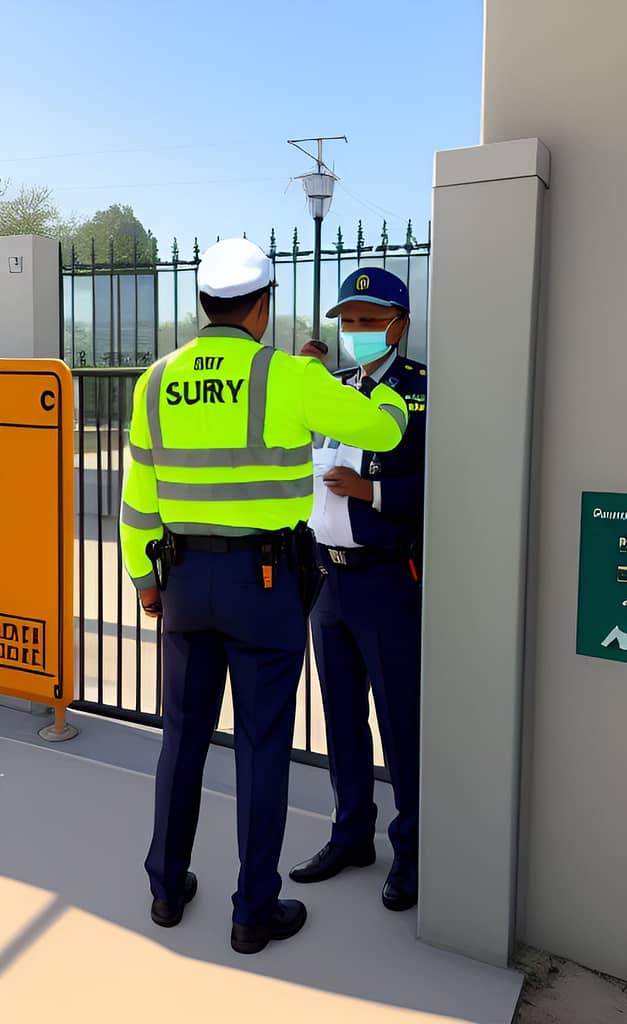The Ultimate Guide to Security Guard Training and Best Practices for Maximum Protection
Table of Contents
ToggleSecurity guards play a vital role in maintaining safety and security in various environments, including residential buildings, commercial establishments, events, and public spaces.
In this guide, we will explore about security guard training and best practices that can enhance their ability to provide maximum protection and security.


Understanding the Role of a Security Guard
Before training and best practices, it is crucial to know the responsibilities and expectations of a security guard.
Security guards are responsible for maintaining a secure environment, preventing unauthorized access, responding to emergencies, conducting regular patrols, and implementing security protocols
Basic Security Guard Training
Security guards must have a thorough understanding of local laws and regulations governing their role. Training should cover topics such as the use of force, privacy laws, and ethical conduct to ensure guards operate within legal boundaries.
Observation and Reporting
Security guards should be trained in effective observation techniques to detect suspicious activities, potential threats, and vulnerabilities.
Reporting procedures should be to ensure accurate and timely documentation of incidents.
Emergency Response Training
Security guards should receive training in first aid, CPR, and emergency response protocols.
This includes handling medical emergencies, fires, natural disasters, and evacuation procedures.
Communication and Conflict Resolution
Effective communication skills are essential for security guards.
Training should focus on clear and concise verbal and written communication, as well as conflict resolution techniques to handle challenging situations peacefully.
Cybersecurity
Understanding online threats, data protection, and basic cybersecurity measures.
Security guards should maintain good physical fitness to effectively respond to potential threats.
Training in self-defense techniques, such as martial arts or defensive tactics, can provide guards with the skills and confidence needed to handle physical safely.
Best Practices for Maximum Protection
1. Regular Training Updates
Security guards should undergo regular training updates to stay updated on the latest security protocols, technology, and industry best practices.
Encourage security guards to be vigilant and to be active. This includes monitoring and patrolling the surrounding environment, identifying potential risks, and responding Quickly.
2. Collaborative Approach
Encourage collaboration and effective communication among security personnel, as well as with other stakeholders such as law enforcement, facility managers, and emergency responders.
3. Technology Integration
Utilize technological tools such as surveillance systems, access control systems, and alarm systems to enhance the effectiveness of security operations.
4. Continuous Improvement
Implement a culture of continuous improvement by conducting regular assessments, reviewing incidents, and analyzing potential vulnerabilities to refine security protocols.
Conclusion
Security guard training and adherence to best practices are essential for ensuring maximum protection in various environments.
By providing comprehensive training that covers legal aspects, observation skills, emergency response, and specialized knowledge, security guards can be better equipped to handle threats and maintain a secure environment.
Frequently asked questions
Training makes security guards to handle a variety of situations, from patrols to emergency response. Proper training them with the knowledge and skills make them do duty efficiently, professionally, and safely.
Best practices include regular risk assessments, maintaining high visibility, understanding and leveraging security technologies, practicing proactive surveillance, and collaborating with local law enforcement.
Most security agencies provide round-the-clock services, but you should confirm the availability based on your specific requirements.
Yes, armed guards practice more extensive training, including firearm safety, proper shooting techniques, and weapon retention.

Great Information about security agency training
thankyou so much sir